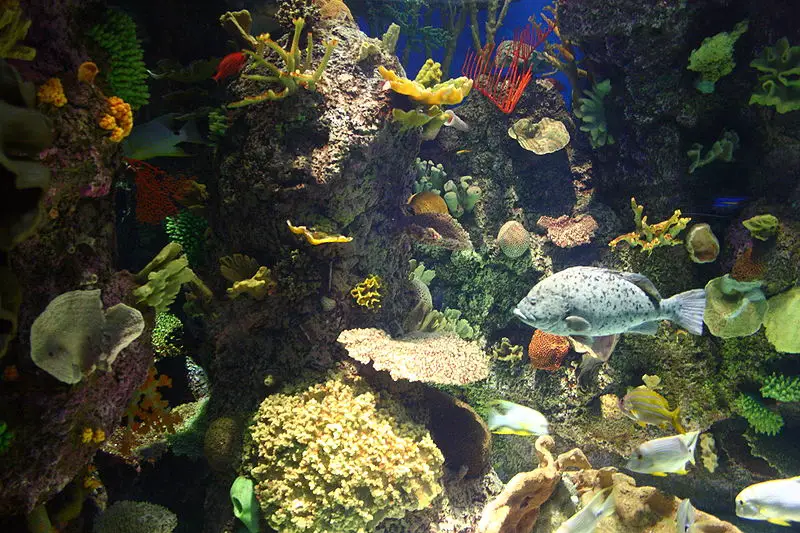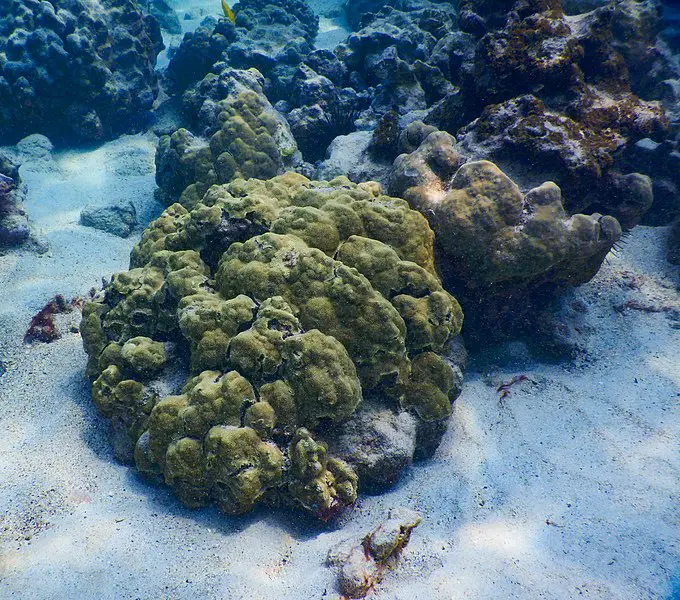You can test the alkalinity in your reef tank by using either test strips or test kits, both of which are available to buy on the wider market. The alkalinity level in your reef tank is an essential part of the survival and health of the coral and other inhabitants of the reef tank. Testing alkalinity is crucial to ensure your tank community is safe and healthy!
But – how do I test the alkalinity in my reef tank in terms of knowing the perfect balance? Ideally, the alkalinity level (which is measured in dKH, degrees of carbonate hardness), should be between 8 dKH, and 12 dKH – these can easily be affected by any number of things, but do need to be properly balanced. Test kits are easy to use and will let you know exactly what to look for.
There are plenty of alkalinity test kits available on the market, too. You will simply need to follow the guidelines of the test kit that you choose, in order to determine whether the alkalinity level in your reef tank is adequate. Then, depending on the result, you will either need to raise or lower the alkalinity level in the tank – normally by no more than 1.4 dKH per day.
How do you maintain alkalinity in a reef tank?
The best way of ensuring that the alkalinity level in your reef tank is stable is by testing it regularly. However, there are of course certain things that you can do as part of your regular maintenance, to better ensure the balance within the reef tank. For example, you can use a two part calcium and alkalinity supplement.
Many reef tank keepers swear by maintaining alkalinity in a reef tank through calcium supplements – it’s a gentle way to gradually alter the alkalinity without the balance negatively affecting your fish, plants or other creatures. Calcium boosters are also widely available in reef tank shops, and through online specialists. However, you should always follow the guidelines of the manufacturer of the supplement that you use.
If you are using the two part calcium and alkalinity supplement for the first time, then it is best to start by using the lowest recommended doses. Once you have introduced the solution into the tank, you should leave it for around 24 hours. The next day, measure the alkalinity level again to see if it is adequate, then proceed as necessary – and again, changes of around 1.4 dKH, up or down, are healthy per day.
What is the ideal alkalinity for a reef tank?
As mentioned, the ideal alkalinity level for any reef tank is between 8 dKH and 12 dKH – and depending on the type of fish or marine life you are looking after, this can also vary. However, the level of the alkalinity is not the only thing that you will need to keep an eye on. In order for the tank to be perfectly balanced, you will also need to check the levels of the calcium and the pH.
The ideal alkalinity for a reef tank is greatly impacted if the calcium levels are too low – it could be that there is too much alkalinity in the reef tank. If that is the case, then you will need to balance it out simply by adding more calcium. That is why both levels should be measured regularly – whenever you can, really!
Your tank’s pH levels are often affected more during the winter, as the reef tank is less likely to have the aeration that it needs. Therefore, the CO2 levels may rise past what’s considered a safe point. If that is the case, then simply open a window where possible, and let the reef tank aerate a bit before closing the window.
How do you balance calcium and alkalinity in a reef tank?
Balancing may be as simple as adding additional calcium to your tank, and regularly testing. Calcium and alkalinity go hand in hand in a reef tank – you cannot have one without the other. Your reef community’s going to need a healthy level of both, so no – don’t assume that you can do away with calcium altogether!
To balance calcium and alkalinity in a reef tank, it’s important to know the upper limits. There should ideally be between 380 ppm and 450 ppm of calcium in a reef tank, and between 8 dKH and 12 dKH of alkalinity in a reef tank in order for it to be perfectly balanced. The trick is to test them both regularly, and add whichever is lacking, to balance out the other.
If you find that the calcium level is adequate, but the alkalinity level is too high, then simply adding some calcium could help to restore the balance. You will naturally notice whether the reef is doing well, but it is definitely best to measure them both regularly. There are also many types of calcium test kits available for purchase online and in reef tank stores – be sure to shop around.
What happens if alkalinity is too high in a reef tank?
If the alkalinity levels are too high in a reef tank, then the inhabitants of the tank are not going to have access to all the calcium that they need. The coral, plant life and other inhabitants of a reef tank require a healthy level of calcium to remain healthy, to grow, and persist. When the alkalinity is too high, your tank life is at serious risk of getting ill or weakening.
If you are planning on keeping a coral plant in a reef tank, for example, then it is your duty to ensure that it is at an optimal state. Thankfully, as difficult as it may seem, it is not complicated to properly maintain the calcium and alkalinity levels in a reef tank. If alkalinity is too high in a reef tank, then you are going to need to reach for the best supplements to tip the balance.
Simply remember to test all of your levels – pH/alkalinity and calcium, for example – regularly. Moreover, when you do adjust them, leave the reef tank long enough to adjust to the new supplements before testing it again, and possibly adding more supplements than the reef tank needs. Never adjust by more than 1.4 dKh per day.
Alkalinity Water Test Kit:
- Contains one (1) API SALTWATER MASTER TEST KIT 550-test, one (1) API MARINE FLAKES 1.1-ounce Fish Food
- API SALTWATER MASTER TEST KIT helps monitor essential water parameters such as high range pH, ammonia, nitrite and nitrate, all of which are essential for your fish to thrive, yet may vary over time and are invisible to the eye
- API MARINE FLAKES Fish Food includes key nutrients and optimal protein sources for vibrant fish and a healthy aquatic environment
- Nutritious formula contains essential Omega-3 fatty acids in addition to spirulina algae
- Keep your Clownfish, Wrasses, Damsels, Tangs and other saltwater fish happy by feeding 2x daily and maintain a healthy aquatic environment by testing water weekly



